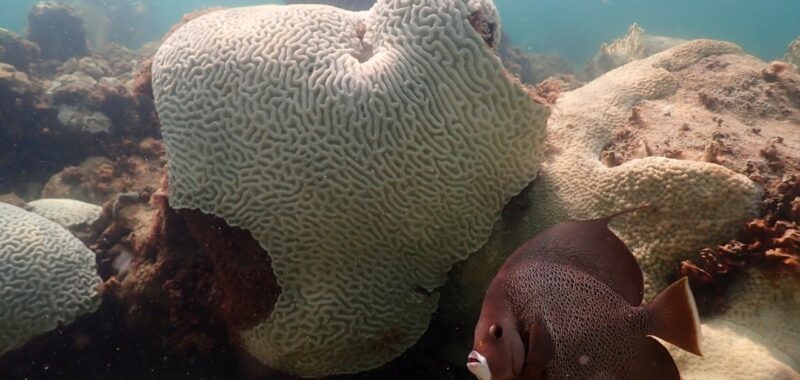
Coral reefs around the globe experienced a mass bleaching event in the past year as the ocean continues to heat, according to new research.
Mass bleaching has been reported in coral reefs in at least 53 countries and territories in the Northern and Southern hemispheres since early 2023, researchers with the National Oceanic and Atmospheric Administration (NOAA) and the International Coral Reef Initiative (ICRI) said in a statement Monday.
Coral bleaching occurs when corals are stressed by changes in conditions — like temperature, light or nutrients — and expel the algae living in their tissues. This causes the corals to turn completely white.
The impacted reefs include those in Florida, the Caribbean, parts of the Eastern Tropical Pacific like Costa Rica and Panama, Australia’s Great Barrier Reef, parts of the South Pacific, the Persian Gulf, and the Gulf of Aden, researchers said.
This marks the globe’s second bleaching event over the past 10 years, with the last one ending in May 2017. This was prompted by an El Niño climate pattern that warmed the world’s oceans for three years, The Associated Press reported.
Researchers noted bleaching must be confirmed within each major ocean basin to declare it a global bleaching event. The basins include the Atlantic, Pacific and Indian oceans in the Northern and Southern hemispheres.
“As the world’s oceans continue to warm, coral bleaching is becoming more frequent and severe,” NOAA Coral Reef Watch coordinator Derek Manzello said in a statement. “When these events are sufficiently severe or prolonged, they can cause coral mortality, which can negatively impact the goods and services coral reefs provide that people depend on for their livelihoods.”
Coral reefs are vital ecosystems for underwater life and help to protect biodiversity and slow erosion. They are also a tourist attraction in several places, supporting local economies and food security.
Researchers noted that coral bleaching does not always precede the death of reefs, but sounded the alarm over climate change’s continued impact on the ecosystems. Climate change has prompted ocean warming, which can in turn cause coral bleaching.
“Climate model predictions for coral reefs have been suggesting, for years, that bleaching impacts would increase in frequency and magnitude as the oceans warm,” said Jennifer Koss, director of NOAA’s Coral Reef Conservation Program (CRCP).
2023 was the warmest year on record by far, with average land and ocean temperatures reaching 2.12 degrees Fahrenheit above the 20th-century average last year, NOAA researchers announced earlier this year.
Copyright 2024 Nexstar Media Inc. All rights reserved. This material may not be published, broadcast, rewritten, or redistributed.

